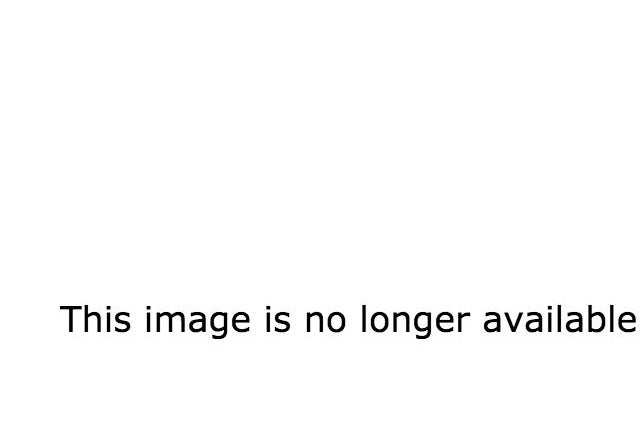Adam Nimoy spoke candidly to BuzzFeed about his relationship with his father, the late Leonard Nimoy, while working on his documentary For The Love Of Spock.
What you read below has been edited for length and clarity.
"My dad was a workaholic."


My dad was a workaholic. And that was the problem: We spent very little time with him because of the fact that he was in these TV series, which were very time intensive. Star Trek was 12–14 hours a day because of makeup changes, and Dad went into Mission Impossible thinking he'd get a little variety after spending three years as Spock — but what he got was, again, hours of makeup changes because he played a master of disguise. It was a very heavy time commitment on his part to the studio. So we really didn't see him that much. In fact, my only real memory of spending quality time with him was during the summer of '71 — he was doing summer stock, Fiddler on the Roof, and we were traveling around with him. As a family that was kind of the first time in years we had spent a significant amount of time together.
"When I did see him I had to share him with the public."

The family had a very complicated relationship with Star Trek. In the beginning we loved it! You can see we're pretty enthusiastic in this photo. We were very enthusiastic when the show was on and it was a hit, there's no doubt about that. We were all big fans — I was such a fanatic for the show. I had been on the set while they were making that show before it had even aired. We were all enthralled by that; however, we had to make major adjustments to our personal lives.
We couldn't go out in public without him being mobbed. In an attempt to do some father-son bonding, we went to a carnival at St. Kennedy's church in our neighborhood and immediately some people came up for autograph. He did three or four and I thought we were in the clear, but then it became a mob scene! I had never seen that before and we had to leave immediately. That was kind of the whole specter of our lives from then on out. Dad was very gracious, and always patient with the fans. And at that point I had no patience, because I didn't see him that often. And when I did see him, I had to share him with the public. It was an adjustment period.
"Before he was in Star Trek, my dad was doing bit parts in dozens and dozens of TV shows. But not steady work and not enough to support the family, so he worked a number of odd jobs."

Before he was in Star Trek, my dad was doing bit parts in dozens and dozens of TV shows. But not steady work and not enough to support the family, so he worked a number of odd jobs including taxi driving, he managed an apartment building in Venice, he used to service these gumball machines, all kinds of stuff.
One of the things he did was to set up and service fish tanks in doctors' offices, which was kind of a fad in the '60s. Every doctor wanted a fish tank to distract and calm the patients. Particularly dentists before people went in to get their teeth pulled. And my dad had cornered that market; he was feverishly busy setting these up in doctors' offices. And he was fascinated by fish. I don't even know how he learned how to do it, but we always had one at home and he was always teaching me how to care for it.
"He would have never been anything but be an actor; he would have done odd jobs to keep his passion going. He just was not destined for anything else."


My dad did not have a lot of formal education or a lot choices in terms of careers. He focused on acting since he was very young. He didn't really know what he wanted to do until he was in a play as a teenager and something just clicked. His older brother went to MIT and had a career at Johnson & Johnson. That's what his parents wanted for him, that's why they emigrated all the way from Russia and that was their idea of the American dream.
When my dad said he wanted to become an actor ... something inside clicked; that's when he knew that's what he wanted to pursue. He started doing more plays in Boston, started taking summer courses at Boston College that completely changed his life. That's what he was passionate about, and his parents were not happy at all about that choice and did not support him in that choice. He had to sell vacuum cleaners in Boston until he made enough money to get himself a train ticket to L.A. and tuition money for acting classes at the Pasadena Playhouse.
He would have never been anything but an actor; he would have done odd jobs to keep his passion going. A lot of his colleagues in that era did just that. They did lots of side jobs to keep the acting going. He was just not destined to be anything else. He could have done anything in the service industry 'cause he had learned all these trades, but his number one passion was acting and he never would have done anything else.
"The limos, the paparazzi, all of that is just window dressing. What's really important is the work that we do and the contributions we make to society."

That's the Christmas parade on Hollywood Boulevard. We're standing with Jonathan Harris, who played Dr. Smith on Lost in Space, which I was a huge fan of. My parents were not typical L.A. people; they attended a lot of events, but they were really not Hollywood. They were very grounded, and we really never forgot where we came from. They were very socially conscious and they were politically and socially active. There was not a lot of flash; my dad was very conservative with money because of his upbringing. We lived a very modest lifestyle. We had a lot of parties, but mostly with friends and sometimes with celebrities, but not very often. They had a really big social circle but there wasn't any hobnobbing; my dad was not trying to rub elbows with people that he thought could further his career. They were much more interested in their circle of friends, some of whom worked in the industry, but weren't really celebrities.
My dad in particular — when we were shooting our documentary in Boston, you could tell he never forgot where he came from. His business manager of 50 years used to tell me all the time, "Your father knows where his first dollar is, it's in the palm of his hand, and he remembers where he got it from." My dad was just very aware, and we were lucky that we were aware of the struggle before he hit it big, so we could remember what life was like and where we really came from. Both my parents were that way; values were really important to them. The glitter and the popularity — my dad used to paraphrase Victor Hugo: That's really the crumbs of greatness — the limos, the paparazzi — all of that is just window dressing. What's really important is the work that we do and the contributions we make to society.
"Star Trek wasn't ... feeding him as an artist."

That's the news conference for Star Trek: The Motion Picture. It was kind of interesting. You know dad wrote a book in the '70s called I Am Not Spock, which infuriated a number of fans because they wanted more Star Trek. But there was nothing forthcoming, and my dad wasn't really that interested in participating because he was doing theater work and challenging himself as an artist and trying to do things other than Spock.
Which is who he was: My dad wanted to be a character actor and follow in the footsteps of a very famous actor from the '30s and '40s named Paul Muni. Star Trek wasn't doing that; it wasn't feeding him as an artist. So he talked about it in this book a little bit, about what he really wanted to do: more challenging roles. But it wasn't that he was disowning Spock or that he was dissing Spock in any way, but the title was a little bit misconstrued. And he himself admitted, in the course of making For the Love of Spock, that of all the controversy on set [during Star Trek], the competition with Bill Shatner, he said the only controversy worth mentioning is when he mistakenly titled his book I Am Not Spock. Twenty years later he tried to correct the controversy by writing a book titled I Am Spock.
So when the Star Trek movies came around, he was ready to go back and do it. He was interested in continuing with the character at that point. He had done a lot of theater in the '70s. Close to a dozen plays, with a lot of variety. A lot of different, interesting plays, so he was ready to go back at that point. However, at the time he had a lawsuit with Paramount over merchandising rights. And there's a famous story that Jeff Katzenberg flew to New York while Dad was in Equus to beg him to come and meet with the movie franchise, and my dad said he would do it if they settled the lawsuit. They did, and quickly. So we are at this press conference and Charlie Bluhdorn was there — he was the president or CEO of Gulf and Western, Paramount's conglomerate, at the time, and my dad had met him several years earlier when Paramount bought Desilu Studios, which owned Star Trek. And Dad met Bluhdorn briefly during the filming of the third season of Star Trek and he said that Bluhdorn didn't really know who he was then. But when we got to that press conference, Charlie Bluhdorn damn well knew who Leonard Nimoy was.
"And he was so invested in the role of Dysart, the psychiatrist [in Equus], that he was completely unrecognizable to me as my dad."

That was an attempt from my dad to reach out to me. I was studying political science at UC Berkeley, and he decided that we should go on a tour to D.C. So he took me, long hair and all, to D.C. And because he was politically active we met the Speaker of the House of Representatives, who I interned for the next summer after cutting all my hair off.
That was the first time I had been with my dad in many years, 'cause I was away at school and I didn't really have that much contact with him; I didn't see him that much. This is the first time we had done any kind of father-son trip together. It was a really good trip for us, it was an eye-opener. We really connected.
The following year was a highlight for both of us because he was doing Equus on Broadway, which was a phenomenal production. He was excellent. I mean, I had no idea what Dad's potential was. I was working in D.C. and I would fly in on the shuttle to New York. And I went to see him for the first time, and I had no idea. Everything that was in that play I was studying in school and it was so powerful, so overwhelming. And he was so invested in the role of Dysart, the psychiatrist, that he was completely unrecognizable to me as my dad. He owned that role completely. It was a highlight of his career. It was a highlight of my summer as I interned for the Speaker of the House. That summer of '77 was a real good bonding experience for us, because there was more conflict to come.
"The time when things were really difficult for him ... influenced me greatly. I did not want to be in the arts, because I wanted to have a steady job."


I was aware of the years of struggle — I was 9 when they started filming the series, and 10 when it was a success. So I was cognizant of the struggle years a little bit, the time when things were really difficult for him, and that influenced me greatly. I did not want to be in the arts because I wanted to have a steady job and I was more scholastically inclined than my dad ever was, so I went to law school. I practiced law for 7 years only to realize it was not my passion, I was not destined to be an attorney. Practicing law was not what I thought it would be and you know law schools do nothing to disavow you of your fantasy. They want you to come pay tuition and stay for 3 years and they don't want you to know what they practice of law is really about, it's a very difficult competitive peculiar type of lifestyle and profession. I just wasn't suited for it.
When I was between jobs, I went to an acting class with Jeff Corey — he actually taught my dad. I went there and it blew my mind completely. He had 15 students who were all younger than me, I was in my mid-thirties at the time and they were all like 25 and they were all phenomenal. The work was phenomenal, and what Jeff was doing with them when he was directing them just completely changed my life. I decided then and there that I was getting out of law and I'm gonna pursue something in the creative arts like my dad did. I knew it wasn't going to be acting. I did not want to be in front of the camera; I wanted to direct. I knew that right away. Watching Jeff direct those actors and getting these incredible performances out of them, it completely changed my mind. I stayed in that class for two years, doing work but knowing it was just a part of my process to educate myself.
And my dad helped me: He said, "You got to go to class, you got to take camera classes, editing, directing workshops, you gotta do everything you can to educate yourself." And then he got me a job on Star Trek VI following Nick Meyer, the director, around learning what it was to direct a feature. And then I went to Next Gen for an entire season and watched their directors. I was too old to go back to film school and I wanted to get some experience. I directed 10 seasons of network television after that, including my dad in a remake of The Outer Limits. I needed a job early in my career, and we approached the guys who were making the remake. It was a Canadian show and they weren't hiring American directors, but I told them that my dad would remake this episode he was in if I could direct it, and they said yeah. And that really pushed my career along in a big way.
"When you're cooking, like Dad was on Three Men and a Baby, you can really see it all come together because he had a passion for the work."

You gotta have passion for whatever it is that you do. It's always about the quality of the work. If you love the work, the possibilities are absolutely limitless, but you have to be focused and completely dedicated. I would get offers to do a job to direct something when my career was doing pretty well. And they'd want me to do a third-rate show in the Valley, not even in a studio, super-low budget, and I didn't think I wanted to do it. But my dad said, "Well, are you doing anything else? Do the work, I guarantee you that you will either learn something on the job or you will meet somebody who will help you in the future. Do the job and don't worry about how your reputation is being perceived or worry about whether it will help your career."
So I started to do work like that, journeyman stuff, and I'm glad I did because I loved the work. It was a great opportunity, because they wanted me and they appreciated what I had to bring to those shows. When all that's happening, you start to feel the passion — that's why you were put on this earth. When you're standing by the camera and everything's happening in the scene and everyone's collaborating and the work is really cooking — which is not always the case, believe me. It can be absolute misery, because the work is so difficult and the hours are so long. When you're cooking, like Dad was on Three Men and a Baby, you can really see it all come together because he had a passion for the work. It was all falling into place.
"He had become my go-to guy. My best friend had become my dad."

In the '80s, 10 years later, our relationship was really on the skids. My dad had — and he said this himself — probably had an alcohol issue. It was the best of times and the worst of times for him: He was divorcing my mother, he was directing Star Trek IV: The Long Voyage Home, which took a lot out of him. It was a very challenging movie. It's an excellent film but it took a lot out of him, and then he was in Toronto directing Three Men and a Baby. He had a lot of struggles as he was transitioning in his life, which is difficult for anybody. We had a lot of really nasty fights in the '80s. I had substance problems and he had his problems, and it just did not mix well.
It wasn't until about six years ago that we finally had some serious reconciliation, and that was due to the fact that we were both in recovery. Cleaning up our act and our own character defects — it helped us stop focusing our anger at each other. He went sober 20 years ago and I went sober 11 years ago and then we started to come back together again through time and patience and tolerance. In 2004, I was ending an 18-year marriage, that I had two kids from, and I didn't even call my dad when I moved out of my house. We just weren't talking; we were totally estranged. But then we both were doing recovery work and we realized we both needed to let go of some stuff that we had been holding onto.
Several years later I started dating the woman who would become my second wife, and she started kinda acting as the catalyst to bring everybody back together. My dad and my stepmother were very enamored with my second wife. Four months after I got married to that beautiful woman, she was diagnosed with terminal cancer. And when I found that out, the first phone call I made was to my dad. Over these years he had become my go-to guy. My best friend had become my dad.
